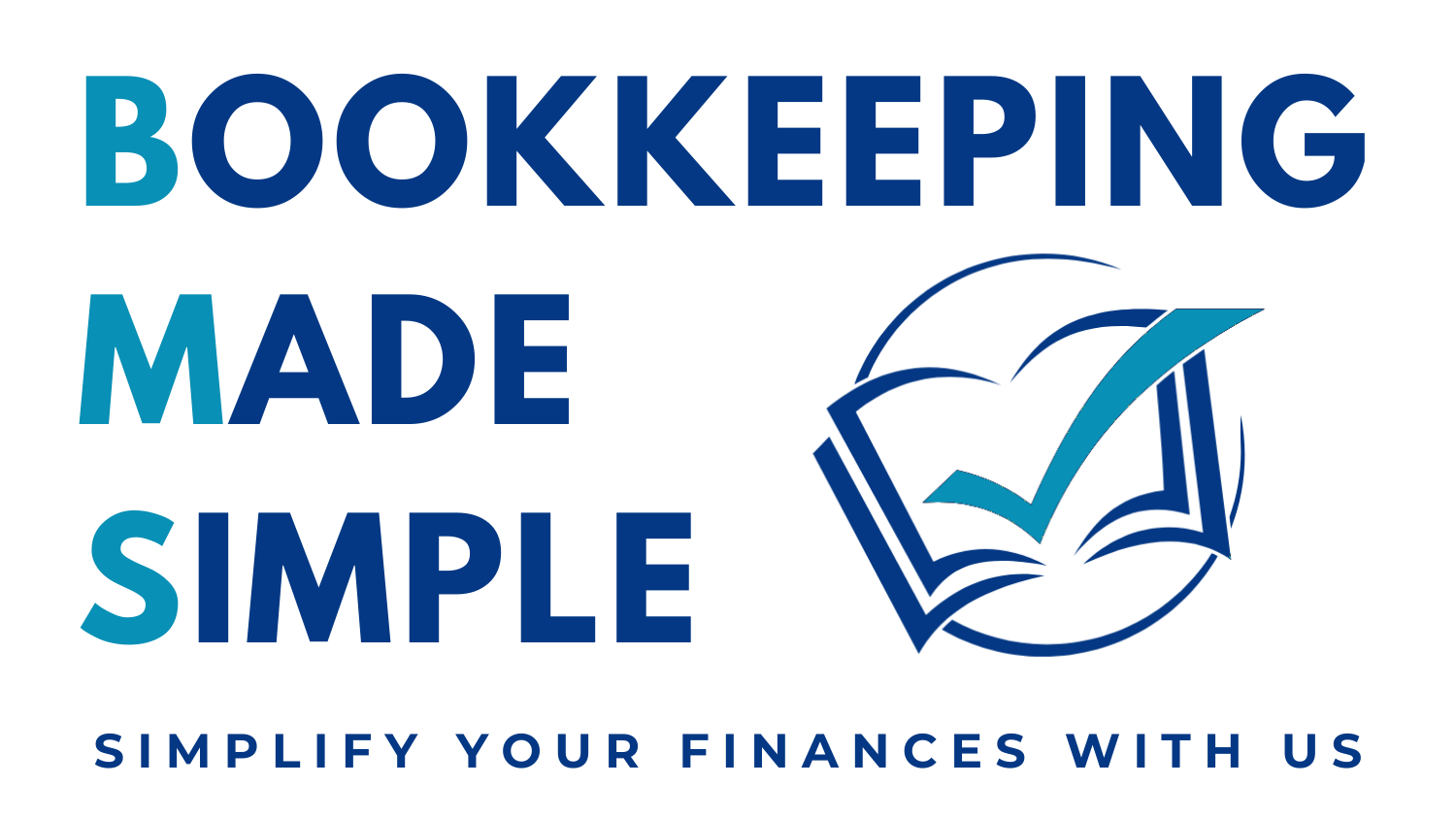Mastering Financial Success: Why Every Small Business Needs a Bookkeeper
In the bustling world of small business ownership, there’s a whirlwind of tasks to juggle. From managing customer relationships to developing new products or services, every day is a series of demands that pull you in multiple directions. But there’s one task that often feels like a storm cloud hanging overhead — managing your finances. As much as entrepreneurs try to avoid it, the numbers always need attention. That's where the expertise of a bookkeeper for a small business comes in, acting as a bridge between financial chaos and clarity.
The Importance of Organized Bookkeeping for Small Businesses
Let’s be honest. Owning a small business can feel like wearing a thousand hats, but bookkeeping is one hat that requires special attention. When you think of bookkeeping for small business, it’s easy to envision piles of receipts, confusing spreadsheets, and the overwhelming pressure of tax season. But accurate bookkeeping is far more than keeping records; it’s the very foundation of financial stability.
A bookkeeper ensures that every cent is accounted for, from your daily expenses to your growing revenue. With clean and up-to-date financial records, you gain valuable insight into how your business is performing, which expenses to cut, and where to invest next. Without organized records, decisions become guesswork, and that’s a risk most small businesses can’t afford. A bookkeeper acts like a financial guide, helping you navigate the complex waters of business finances so that you can focus on growth.
Bookkeeping is More Than Data Entry – It’s Financial Storytelling
Many assume that bookkeeping is simply data entry, plugging numbers into a system, and calling it a day. But when you employ a bookkeeper for a small business, they do so much more than just input data. Bookkeeping is like writing the story of your business, chapter by chapter, number by number. Each transaction tells a tale—of investments made, returns earned, or expenses incurred. A good bookkeeper interprets these numbers to reveal the bigger picture.
Imagine running your business without any insight into its health. It’s like trying to drive a car with a foggy windshield. You can barely see what’s ahead, and every turn feels like a gamble. A bookkeeper clears that fog and provides you with financial clarity. They identify trends, detect red flags, and pinpoint growth opportunities that you might have otherwise missed.
Common Mistakes Small Business Owners Make Without a Bookkeeper
Handling finances without the help of a bookkeeper for a small business often leads to avoidable pitfalls. Here are some common mistakes:
Mismatched Records: Small business owners often misclassify expenses or income. This leads to inaccuracies, which can cause trouble during tax time or when trying to secure a loan.
Failure to Track Cash Flow: Many entrepreneurs struggle to maintain a positive cash flow. Without proper tracking, you can easily run into cash shortages, jeopardizing your ability to pay employees or vendors on time.
Overlooking Tax Deductions: Tax regulations are complicated, and without a bookkeeper, you might miss valuable deductions or credits that could save your business money.
By hiring a bookkeeper, you avoid these common blunders and ensure that your business runs smoothly, no matter how complex the finances may be.
The Benefits of Having a Bookkeeper on Your Side
The benefits of bookkeeping for a small business extend far beyond simply having neat financial records. When you invest in a bookkeeper, you’re investing in peace of mind, knowing that your finances are being managed by someone with experience and attention to detail.
Time-Saving: As a small business owner, your time is precious. By delegating bookkeeping tasks, you can focus more on growing your business and less on crunching numbers.
Accuracy and Compliance: A professional bookkeeper ensures that your records are accurate, up-to-date, and comply with the latest tax laws. This accuracy prevents costly mistakes that could affect your bottom line or lead to legal trouble.
Financial Analysis: Bookkeepers don’t just record transactions; they can also help analyze your financial data to identify potential areas for improvement. Whether it’s identifying cost-cutting opportunities or suggesting investments, their insights are invaluable.
Stress-Free Tax Season: Tax season is a nightmare for most small business owners, but with a bookkeeper by your side, you’re prepared. They help gather all necessary documents, ensuring that nothing is overlooked when it’s time to file. Plus, they work with your accountant to make tax preparation a breeze.
When Should You Hire a Bookkeeper for Your Small Business?
The question isn’t whether you need a bookkeeper for a small business—it’s when to hire one. If you’re still handling your finances manually or if you’ve found yourself drowning in spreadsheets, chances are you need the help of a professional. A common misconception is that only larger businesses require bookkeeping services, but the truth is, that even the smallest of startups benefit from organized financial records.
Hiring a bookkeeper early in your business’s lifecycle is a smart move. It sets the foundation for long-term financial success and allows you to focus on scaling your business without worrying about financial mismanagement. Plus, the earlier you bring in a bookkeeper, the easier it is to prevent financial problems from snowballing.
How Bookkeeping Contributes to Business Growth
For small businesses, every decision counts. Whether it’s deciding how much to invest in marketing, hiring more staff, or expanding into a new market, every move has financial implications. This is where the expertise of a bookkeeper for a small business becomes essential. They provide you with the financial data you need to make informed decisions.
Imagine planning a major investment without knowing the true state of your finances. You could be taking on unnecessary risks without even realizing it. With a skilled bookkeeper on your team, you have the data-driven insights to plan strategically and ensure that every dollar is used effectively.
Additionally, having clean financial records is crucial when applying for loans or seeking investors. Lenders and investors want to see that your business is financially stable, and accurate bookkeeping provides that proof. Without it, you may struggle to secure the funds needed to grow your business.
Balancing the Books and Your Peace of Mind
Let’s face it, owning a small business comes with its fair share of stress. There’s always something demanding your attention, whether it’s customer service, marketing, or product development. And then, on top of it all, there’s bookkeeping. The financial side of the business can be daunting, but that’s exactly why having a bookkeeper for a small business is such a relief.
When your books are balanced, and your finances are in order, it’s like a weight has been lifted off your shoulders. You no longer have to dread the end of the month or the upcoming tax season. Instead, you can breathe easy, knowing that a professional is handling the numbers, and you can focus on what you do best—running your business.
Bookkeeping Solutions Tailored to Your Business
Every small business is unique, with different needs, goals, and challenges. That’s why it’s important to work with a bookkeeper who understands the specific demands of bookkeeping for a small business. Whether you need help managing daily expenses, handling payroll, or preparing for tax season, a bookkeeper can tailor their services to fit your business’s needs.
This personalized approach ensures that you’re not paying for services you don’t need, while still receiving the financial support that’s critical for your success. With the right bookkeeping partner, your business can thrive financially and continue to grow without any unexpected financial hiccups.
Conclusion: Simplify Your Financial Life with a Bookkeeper
In the end, a bookkeeper for a small business is more than just a financial expert—they’re a partner in your success. They help you understand your business’s financial health, avoid costly mistakes, and make informed decisions that drive growth. If you’ve been handling your finances solo, now might be the time to consider bringing in a professional.
For small businesses looking to simplify their finances, maintain accurate records, and enjoy stress-free tax seasons, partnering with a bookkeeper is a smart investment. Bookkeeping Made Simple, LLC, believes in providing tailored bookkeeping solutions that meet the unique needs of your business, giving you the peace of mind to focus on what truly matters: growing your business.

